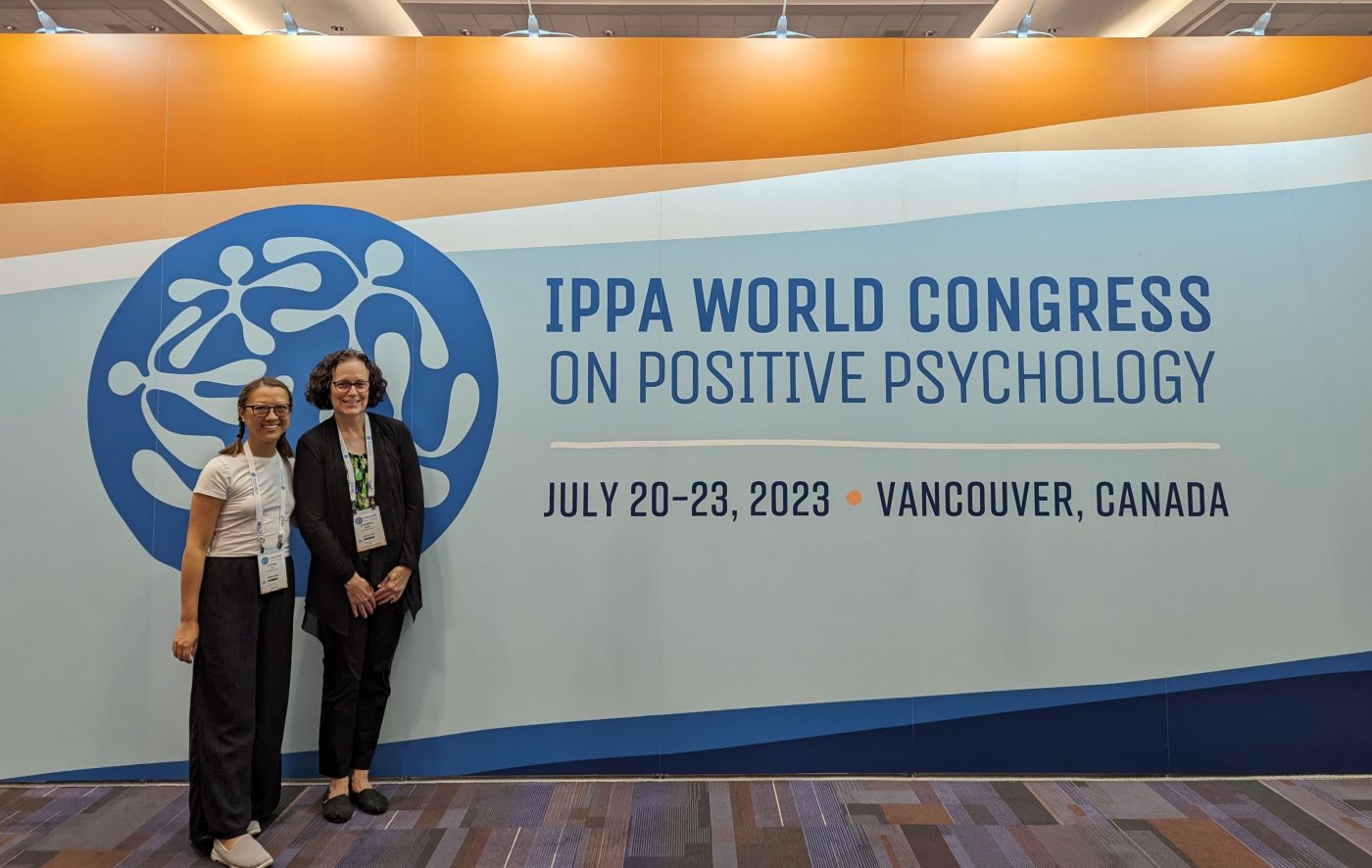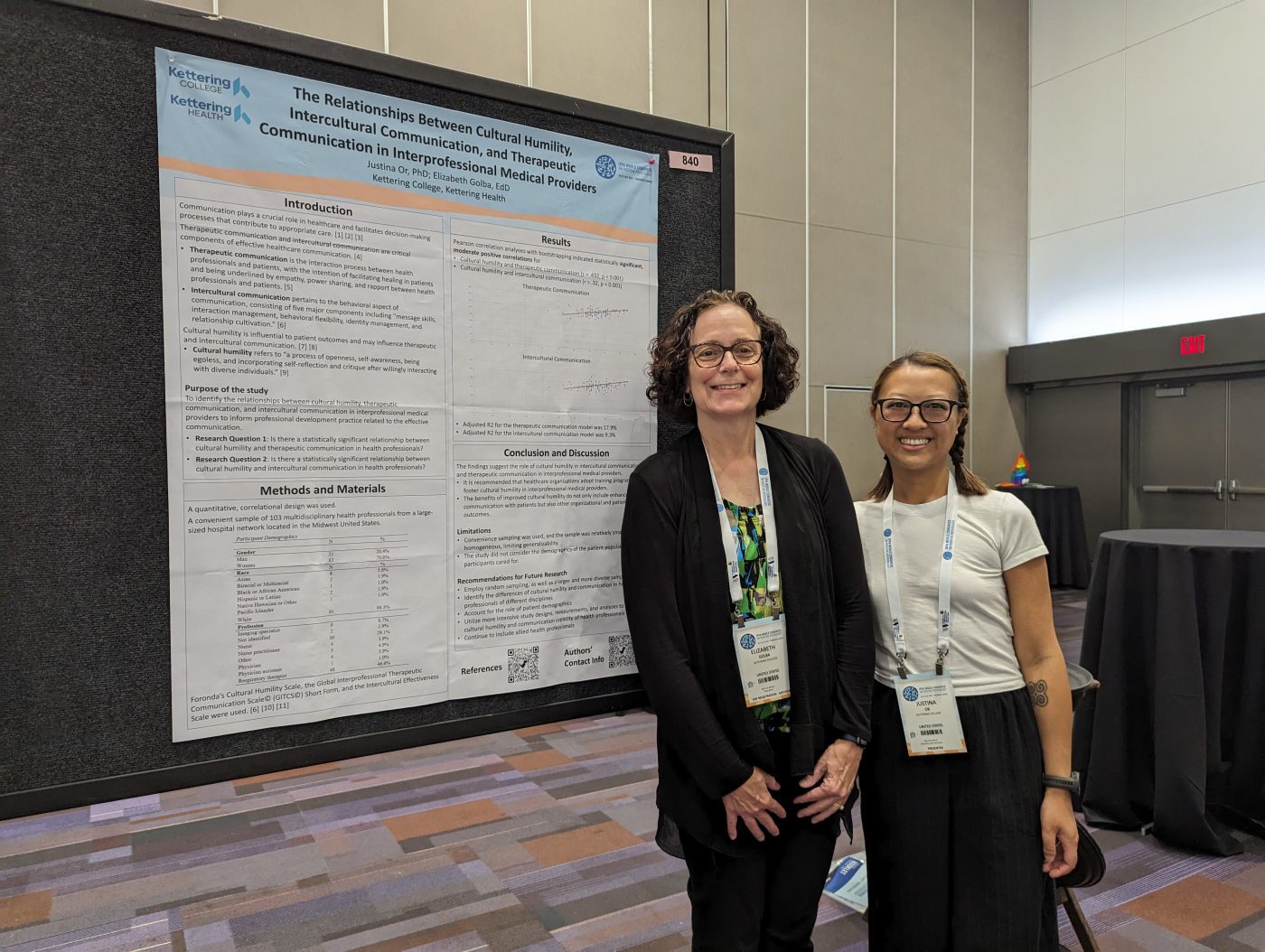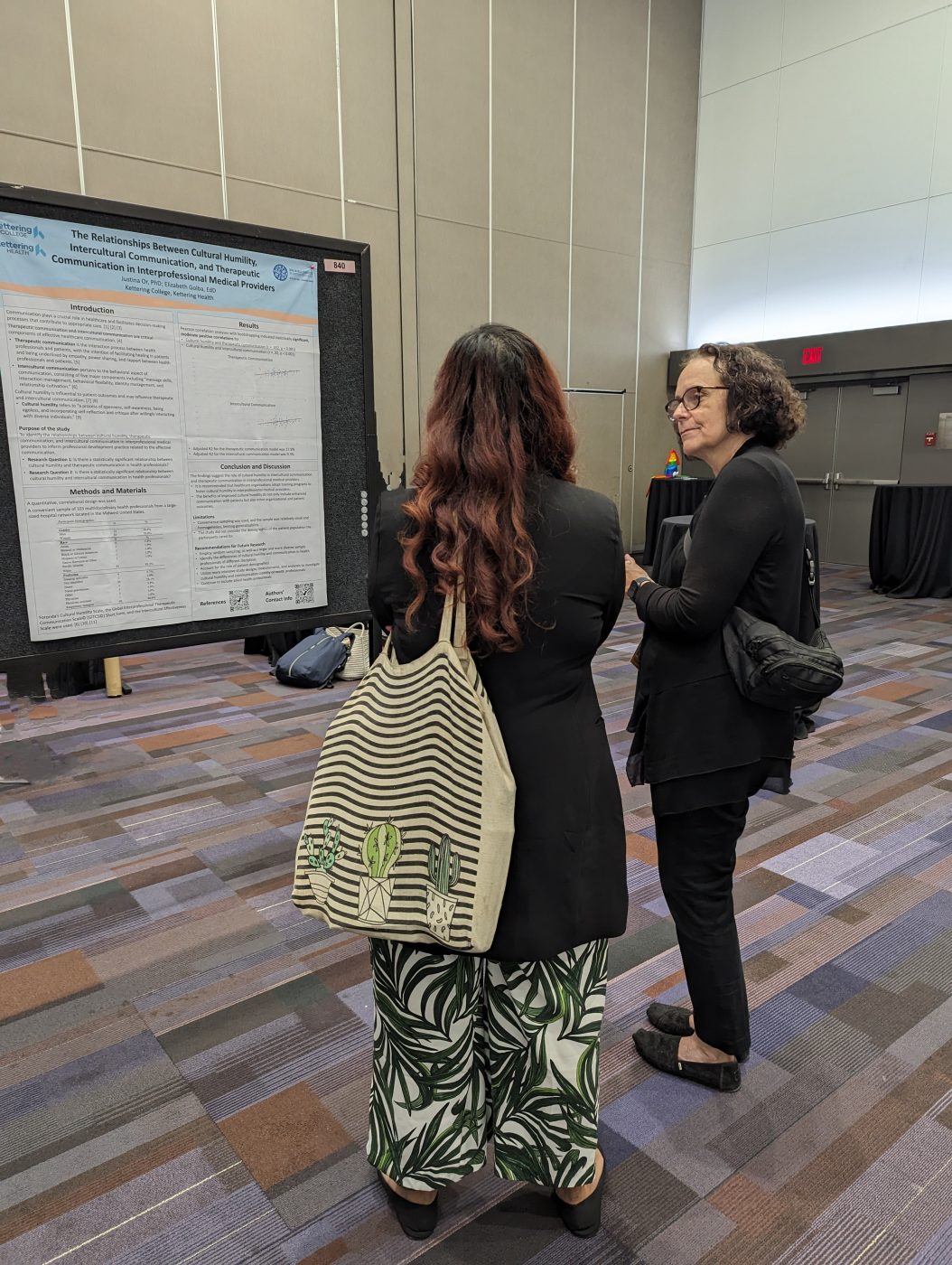Professors Present at International Conference


Summer is a time for faculty to step away from their classrooms, but professors often take this time to grow their own learning.
Dr. Justina Or, Health Sciences assistant professor, and Dr. Liz Golba, Health Sciences chair and professor, presented their collaborative published research in July at the International Positive Psychology Congress conference in Vancouver, Canada. Over 1500 educators, researchers, and service providers attended the conference from multiple countries.


The professors’ publication was a result of their combined research that examined cultural humility and communication. Along with presenting their work to others, they also learned information that will enhance their lives both personally and professionally.
Dr. Or says, “The conference has only affirmed my love for positive psychology. Psychology can be found in every aspect of life, therefore so can positive psychology. The conference has reminded me of many positive psychology concepts that can be applied in everyday life, e.g., personal relationships, professional relationships, work. However, I believe that our impact on the world starts within ourselves first.”
The poster presentation allowed the team to share their research with others and start conversations. Dr. Golba says, “Several people stopped by our poster and inquired about the topic, results, and future research plans. Prior to the conference, I heard of positive psychology, but I was unaware of how it applied to everyday life. Though my main area of interest is healthcare, working with my colleague who has a strong passion for positive psychology sparked my interest in positive psychology.”


The team says the conference was a strong tool for educators in that it allows them to learn and apply a positive psychology approach when working with students. Dr. Or offers up this example: “For instance, educators may learn to focus on students’ strengths when working with students (vs. only weaknesses). They may also learn to view challenges as opportunities for growth (vs. difficulties); by modeling this, they could reframe challenging situations for students and encourage students to feel empowered to problem-solve (vs. feel defeated). Positive psychology also concerns big life questions, such as the meaning of life. I believe these questions are essential for educators, as they have a sense of purpose for the work they do as educators.”
Dr. Golba agrees, and says, “It is important to attend conference events as educators to expand horizons and reaffirm current teaching practices. It was invigorating to learn more about positive psychology and how to incorporate it into my teaching pedagogy.”
(Photos Courtesy of Drs. Golba and Or.)
Print This Page